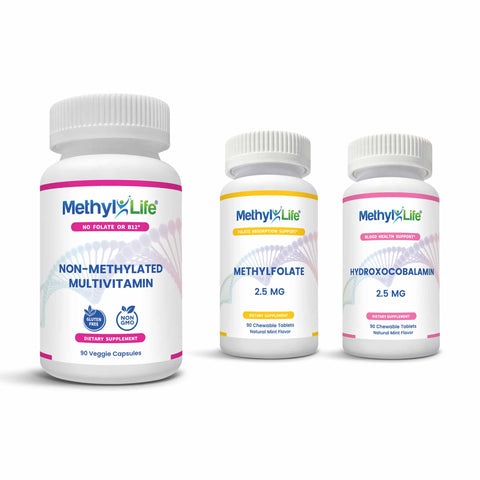Folate and methylfolate requirements in the body by age
Your folate requirements increase throughout life according to different stages of development. These increases often reflect higher rates of cell division, DNA synthesis, and methylation requirements; for example, during adolescence or pregnancy.
According to the National Institutes of Health, the average daily recommended intakes of folate by age groups are as follows:1
Birth to 6 months: 65 mcg
Infants 7–12 months: 80 mcg
Children 1–3 years: 150 mcg
Children 4–8 years: 200 mcg
Children 9–13 years: 300 mcg
Teens 14+/adults: 400 mcg
Pregnant women: 600 mcg
Breastfeeding women: 500 mcg
Note: The bioavailability and metabolism of different forms of folate are not the same. Both natural folate (from food) and synthetic folate (folic acid) must be converted to active methylfolate to be used by the body. Folic acid requires a lengthy conversion process before it can be used.
This conversion is not very efficient, and only a fraction of ingested folic acid will become active folate. This is even lower in people with MTHFR genetic mutations.
Methylfolate, on the other hand, bypasses this entire conversion pathway because it is already active and immediately usable by cells. Because none of the methylfolate dosage is ‘lost’ during conversion, much lower doses are required. This is why even low-dose methylfolate is considered more efficient and more reliable than folic acid.















